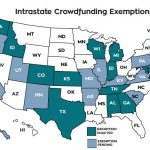co-authored with Jennifer Brandel, Aniyia Williams, Astrid Scholz, and Vanessa Roanhorse
This week, our country’s most powerful CEOs signed a stunning announcement issued by Business Roundtable: they redefined the role and purpose of the modern American corporation to now serve stakeholders beyond shareholders, and prioritize customer value, fair employee wages, equity and inclusion, ethical supplier relationships, sustainability, environmental impact, and community. The announcement was, in a word, stunning.
As executives who, from the outset, have built our companies with these factors in mind, receiving this news was like reading the final chapter of Charles Dickens’ “A Christmas Carol.” We were reminded of Ebenezer Scrooge, a miserly banker, who is visited by the ghosts of his past, present, and future. Seeing the disastrous and cruel repercussions of his actions, Scrooge develops a conscience. He repents by turning his attention to the little guy, to the people on whose shoulders his fortune has been built. Scrooge transforms from a village villain to a community caregiver.
After picking our jaws up off the floor, we were left to ask ourselves: could this fiction become real life? Is this transformation possible for corporate America and, more broadly, for capitalism itself?
We are writing this letter to these 181 Scrooges who have just exited the boardroom and are trying to fundamentally re-orient their boards and businesses to make their monumental revelation real. We would like to be of help in this moment. Our qualification is that we have the painful, powerful, and privileged experience of being “The Other” in corporate America. We come from Indigenous, immigrant, Black, and Latinx communities. We were raised in Midwestern suburbs, public housing, and on the dirt roads of reservations, far removed from the power centers of Wall Street and Silicon Valley. We learned lessons of leadership from the land and local investment — through the unlikely paths of picking grapes in Tasmania, union organizing, transforming timber companies into community stewards, reporting for local public radio stations, and scaling cottage industries into channels for wealth creation on tribal territories. We also all happen to be female/women-identifying CEOs.
Underrepresented CEOs like us — women and people of color — have had no other option but to build companies in the manner described in the Roundtable’s more humane re-orientation. We consider and care for our customers and suppliers because they are our friends and neighbors. We prioritize and invest in our employees because our kids go to the same public school, our elderly parents rely on the same broken healthcare system, and we’re all still paying off the same student loans. We advocate for community wellbeing and increased corporate taxes because we drink the same tap water, ride the same municipal bus, and buy food from the same local farmers. It is not possible to separate our company from the whole ecosystem in which we exist. It is not possible to consider a minority of shareholders’ profit alone, when we see, firsthand, the harm caused by the false promise of trickle-down economics every day.
As you embark on this journey of corporate insight and integration, we invite Roundtable leaders to use this opportunity to build bridges, and to find genuine ways of listening and responding to the set of new stakeholders to whom you want to be accountable. Rather than launch a vanity corporate social responsibility (CSR) program, here are six steps to help you deliver on your promise:
- Examine and audit your current practices.
- Find, support, and elevate the internal changemakers, those who have been vocally advocating for these changes.
- Listen to and learn from those already on the ground doing this work (through vehicles like B Corp, triple bottom line, steward ownership, platform cooperativism, etc.), and those business owners like us who have been displaced and left behind.
- Develop paths to ownership for the new stakeholders you’re engaging.
- Make the creation of value for all stakeholders a KPI for all business lines and units; don’t leave it to the CSR department.
- Develop metrics and report your progress, publically.
Our greatest fear is that the Roundtable’s announcement represents a far darker and more dystopian chapter of corporate America — that the statement will turn out to be hollow words without necessary, bold action and investment; that decisions will be made without transparency and accountability, creating an even bigger divide of wealth inequality; that minor appeasements, flashy marketing slogans, and increased philanthropy will mask the systemic inequality these companies perpetuate.
“I will honour Christmas in my heart, and try to keep it all the year. I will live in the Past, the Present, and the Future. The Spirits of all Three shall strive within me. I will not shut out the lessons that they teach!” exclaims Ebenezer Scrooge.
Capitalism’s ability to grow a socially conscious heart rests on recognizing this lesson: we’ve reached the limits of counting growth alone as the only metric that matters. Competition and short-term thinking no longer serve us physically, spiritually, or mentally. Growth at all costs runs counter to the values that help our families, communities, and environment to thrive. A more just arc of economic history, and our survival itself, depends on collaboration, care, and balance.
Let’s invite these complicated ghosts of Capitalism Past into the chambers of Wall Street — so that a new Main Street-that-benefits-all can emerge.





